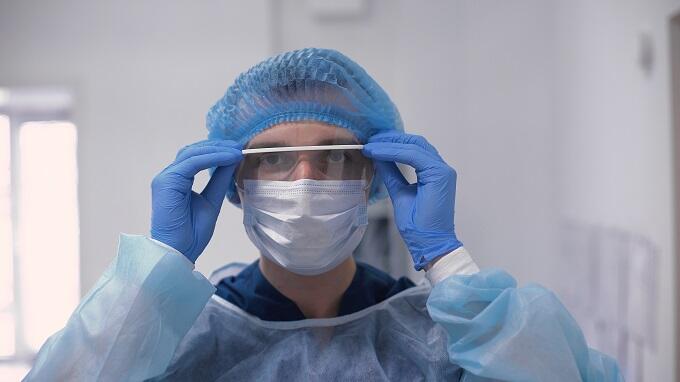
Blog: Product quality and safety under threat
Countries are easing their processes to get important sanitary and hygiene products and personal protective equipment through borders to respond to the peaking demand while ensuring their quality and safety. However, this has led to reports on the sub-quality of some products, such as hand sanitizers and more recently, face masks.
Conformity assessment is an essential function in the supply chain that checks whether quality and safety requirements defined in standards and regulations are met. It includes certification, inspection and testing. Given these recent occurrences reported in light of COVID-19, can we still rely on conformity assessment processes to ensure the quality and safety of essential products in the healthcare industry?
The certification process often needs an on-site audit. Testing laboratories or inspection bodies require lab technicians or inspectors to be physically present for testing or in the field for the inspection of goods (for example, at the port). In this difficult time when movements are restricted in many countries, certification bodies are not able to conduct the necessary audits, given the reduced number of lab technicians and inspectors at work.
Reduced activity by relevant conformity assessment bodies is indeed significant, as flagged by a few accreditation bodies. The European Accreditation in its communication on the impact of COVID 19 states: ‘Due to the outbreak of the coronavirus disease 2019 (COVID-19) and the subsequent travel restrictions established by national governments in the vast majority of countries, both conformity assessment and accreditation activities have been seriously affected in different ways. In particular, conformity assessment bodies (CABs) and national accreditation bodies (NABs) are being forced to cancel or postpone most of their “in situ” activities such as on-site assessments, audits, witnessing visits and inspections and they will have to face the situation of only being able to provide their services with a workforce that that is now mostly working remotely. This will affect the service provided and also lead to a possible temporary lack of access to certain supplies or services normally subcontracted by the CABs.’
With the pressing need to prevent the spread of COVID-19, the demand for sanitizers and personal protective equipment has indeed hit fever pitch. To make these available to the public, governments in developing countries are on the one hand adopting flexible approaches in border controls, and on the other hand are encouraging their local small businesses to produce sanitizers and masks despite, in some cases, the lack of national standards on these products.
What can standards and conformity assessment bodies do to ensure the quality and safety of these goods?
First, standards on the products should be made available to small businesses. There are already a few good initiatives. The International Organization for Standardization (ISO) has decided to make available free of charge, in read-only version a number of standards on protective equipment and medical devices such as:
- ISO 374-5:2016, Protective gloves against dangerous chemicals and micro-organisms – Part 5: Terminology and performance requirements for micro-organisms risks
- ISO 13688:2013, Protective clothing – General requirements
- ISO 10993-1:2018, Biological evaluation of medical devices – Part 1: Evaluation and testing within a risk management process
The French national standards body (AFNOR) has responded by producing a reference document proposing requirements when making new protective masks – and this through the collective wisdom of leading experts. The document ‘AFNOR Spec – Barrier masks’ exists as a free download.
Other national standard bodies should follow these approaches and make their standards available.
Second, border control authorities should adopt a risk-based approach to official controls, leveraging on past conformity assessment data of suppliers and manufacturers. Reliable accredited bodies should issue such data. This would reduce the need for thorough inspection and testing which facilitates the quick release of goods from customs.
Third, where certification bodies are unable to conduct on-site audits due to safety reasons, desk-audits should be possible in these exceptional circumstances, based on relevant documents, records, stakeholder interviews, pictures and other available information. A justification for replacing an on-site audit with a desk audit must be included in the audit report.
That said, flexible approaches towards certification do not come without risks. Unscrupulous suppliers of personal protective equipment are trying to benefit from the pandemic and its resulting demand by supplying fake or dangerous products.
Strict controls for these products remain a must.



